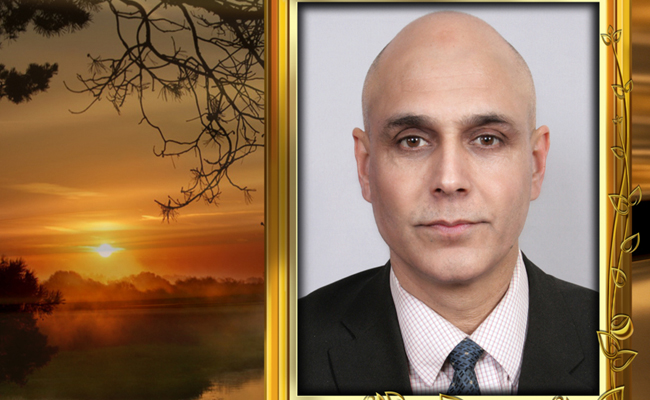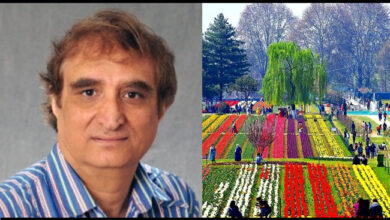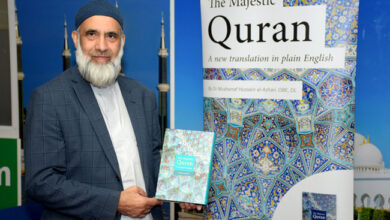Is Simplicity the Solution to Our Problems?

Written By: A. Qasim Swati (Manchester, UK)
Today’s is the age of science and modern technology. On one hand, we benefit a lot from technology which has enabled us to have improved communication, an easy access to information, facilities for having creativity and innovation in life, ease of mobility, efficiency and productivity, improved entertainment, lifestyle and housing, education and health facilities, social networking and so on. On the other hand, modern technology has several negative impacts and effects on our daily lives, ranging from social, economic, cultural, religious and ethical problems to mental, emotional and psychological issues and disorders. However, this is not modern technology to blame for the sufferings we have, but this is the way we use the technology and becoming addicted to it to be responsible for our problems instead. Therefore, we do not need to avoid using modern technology while addressing this issue, but we have to simplify our lives and get rid of the problems faced by us these days.
Simplicity: Simplicity is the quality, property or condition of being easy to understand or do or something being simple. It often refers to such qualities, as clarity, beauty or purity. Simple things can be understood and explained easily than those that are complicated, confusing and ambiguous. Simplicity is also used for denoting such characteristics of life, as freedom from duplicity, innocence, straightforwardness and being genuine. Simplicity is the state of being plain or uncomplicated in form or design. It is meant something that is ordinary, traditional or natural and not complex. It is the quality of being without unnecessary or extra things or conditions.
Simplicity stresses less upon material wealth, luxury goods, designer clothes, fancy cars, etc., and more on such things that you cannot buy with money, like free time, strong ties or relationships, spirituality, a connection or link with nature and so on. The different terms used for living a simple life can include such words, as voluntary poverty (as it used to be called in the past), voluntary simplicity, minimalism and downshifting, etc., or simply ‘simplicity’.
Before we go on discussing the significance of simplicity in our lives, we need to draw a line between needs and wants by distinguishing them from each other, because these are the two pivotal factors responsible for determining our current lifestyles.
Needs: From economic point of view, needs can be defined as goods or services that are necessary and required for living one’s life. This can cover such areas of life, as food, clothing, shelter and healthcare issues. Thus, a need is something that is required or essential. It is something that you must have in order to live a satisfactory life or to achieve a particular thing. Someone, who is in need of something, must have or should have it. A need is a feeling or state of greatly wanting something, but it is also the state of being necessary. If you say that someone or something needs something, you can mean that the person or thing should have it or would benefit from having it. Accordingly, a need is the state of having to have something that you must have so that you can survive.
The idea of survival is real in economics. It means that someone will lose their life, if their basic needs of life are not met or provided. For instance, everyone needs such things, as oxygen (gas), water, food, clothes and shelter to live.
Wants: A want is a desire for something. This is also known as a wish, longing, demand yearning desire or craving. This is a state or condition of mind when you feel that you would like to have something or would like something to happen. Unlike needs, wants are goods or services that are not essential, but that we wish for or desire to have. So, a want is a desire or wish for something. This is something we may like to have rather than a necessity or requirement for living our lives. For example, someone needs clothes to cover their body, but they may not need to have designer clothes. Similarly, food, clothing and shelter are needs for a person to live, but such things, as jewellery, entertainment or toys and games are wants, but not needs.
The Importance of Simplicity in Life:
There are many advantages of living a simple life, with the help of which, one can be able to live a happy, satisfactory and meaningful life. Some of the benefits and merits of simplicity are mentioned, as follows:
Less Stress and More Peace of Mind: We are humans and we have our own human weaknesses, physical and mental limitations, restrictions and boundaries of potential. If we avoid doing unnecessary things in our lives and lighten or reduce our burden, accordingly, this can give us peace of mind and the opportunity to have less or no stress, tension, strain or depression and other such psychological and emotional conditions. By living simply and keeping away from confusion and complication in life, we can have a more stress-free life and peace of mind. This is because of this significance of simplicity that Sir Isaac Newton (1642 – 1727), an English mathematician, astronomer, theologian, physicist, author and a key figure in the scientific revolution, expressed his views regarding having a simple life, as: “Truth is ever to be found in simplicity, and not in the multiplicity and confusion of things.” Similarly, the founder and director of Eternal Perspective Ministries (EPM) and a former Pastor for fourteen years, Randy Alcorn, said: “Every increased possession adds increased anxiety onto our lives.”
Living a Tidy and Clean Life: Because of adopting a complicated and stylish lifestyle, we try to accumulate as many varieties and quantity of the items, things and stuff we use for the daily life, as possible. As a result, we make our houses, workplaces and other relevant places full of clutter and junk. We do not care about the cost and expenses of gathering unnecessary items, like several mobile phones, TV sets, chairs, tables, watches, microwaves, dish-washers, washing machines, laptops and other such stuff of daily use, that we can see junk and clutter everywhere around ourselves. By starting a simple life, we can save both our energy, resources, money as well as we can keep our homes, places of work, etc., clean and tidy, too. This is due to so many advantages of simplicity that Mark Adam Hyman, an American physician, The New York Times best-selling author and the founder and medical director of the Ultra-Wellness Centre and a columnist for The Huffington Post, prefers simplicity to something else (elegance), as, “Don’t get me wrong, I admire elegance and have an appreciation of the finer things in life. But, to me, beauty lies in simplicity.”
A Meaningful Life: If you do not waste your time, money, energy, potential and other resources on unwanted, unimportant, useless and unnecessary things, you can concentrate and focus on what is important in your life and can lead a meaningful life by prioritising what is necessary, accordingly. Consequently, you can have positive and good results of what you do in your life. In other words, if you exclude the unimportant and unnecessary things, activities and commitments from your To-Do-List of life, you will be able to set a genuine goal of life leading to a right direction in your future. This is because of the reality about living a simple life that a Stoic philosopher and Roman Emperor from 161 AD to his death in 180 AD, Marcus Aurelius Antoninus (121 AD – 180 AD), said: “Do nothing but what is necessary. By this rule, a man has the double pleasure of making his actions good and few into the bargain. For the greater part of what we say and do, being unnecessary, if this were but taken away, we should have both more leisure and less disturbance. And, therefore, before a man sets forward, he should ask himself this question, ‘Am I not upon the verge of something unnecessary?’”
Mental and Physical Health: Living a simple life is also very beneficial for having mental, psychological, emotional well-being and physical health. If you start living a simple life, you will tend to adopt lifestyles, in connection with living a simple life which can help you a lot in improving both your mental and physical health, because you are more possible to eat natural, fresh and unprocessed foods instead of having junk foods, like meals at various hotels, takeaways and restaurants. You are also likely to prefer home-cooked foods to those you can get from the restaurants and hotels. By doing so, you can prevent yourself from so many such diseases, ailments and medical conditions, as diabetes, high blood pressure, flu, headaches, stress and so on. Simple living can also help in reducing the effects of such disorders, as paralysing anxiety attacks, high sensitivity, autism, ADD (Attention Deficit Disorder) and such other medical issues. It was due to the enormous benefits of simplicity that Henry Wadsworth Longfellow (1807 – 1882), an American poet and educator, once called simplicity to be the supreme excellence, as: “Simplicity in character, in manner, in style; in all things, the supreme excellence is simplicity.”
Freedom of Conscience: Conscience is a person’s moral sense of right and wrong, viewed as acting as a guide to one’s behaviour. For impressing someone at your workplace, office, in your family or even in your neighbourhood, you may tend to own or have so many physical or material possessions, belongings, paraphernalia, things, items or stuff in some way that you may not really need or even want. But, as humans, most of the people are worried about what other people will think or may say about them, if they do not own a certain thing in life or if they do not lead a fashionable or stylish lifestyle in their community. This is what has been exactly mentioned by C. Joy-Bell C., the most frequently quoted author, a renowned female thinker and writer in today’s world, in these words: “The unhappiest people in this world are those who care the most about what other people think.” Thus, we can have a free conscience, if we get rid of all the useless and unnecessary rituals, customs, traditions, ideas and habits imposed upon us by the cultural, social and traditional complications of society.
Plenty Spare Time in Life: If we do not do so many things at one time and if we avoid or stop doing unwanted, unnecessary and unimportant things and activities in life, we can have more spare time for creative thinking and doing something positive that can prove to be very beneficial for ourselves as well as for others. A renowned ancient Chinese philosopher, writer, the founder of Philosophical Taoism and a deity in religious Taoism and traditional Chinese religions, Laozi or Lao – Tzu, has highlighted the importance of simplicity in these words: “I have just three things to teach: simplicity, patience, compassion. These three are your greatest treasures.”
Having Self-confidence: If you rely on your personal abilities, strengths, good qualities and capabilities instead of depending on what you own, you can start having trust in yourself and become self-confident. If you are content and satisfied with the way you live because of who you are and not because of what you have, this will create self-confidence in yourself and you will never desire for leading a luxurious, expensive, fashionable and stylish lifestyle.
Extra Money/Financial Freedom/Less Financial Burden: If you stop spending carelessly on unnecessary shopping in costly shopping supermarkets, avoid leading a stylish lifestyle, walking or riding and using the public transport instead of owning an expensive car of your own, getting your own vegetables and other foods by getting involved in horticulture and farming, spend your money sensibly, depend on your own home made foods instead of haunting ( or visiting repeatedly) expensive restaurants, hotels and takeaways, getting the most from the available natural resources, you can be able to save a lot of money in this way, which you can use for many other good causes and purposes. If we try to start living such a simple life, we can do so, as the same has been argued by Confucius/Kong Qiu (551 BC – 479 BC), a Chinese editor, teacher and philosopher of the Spring and Autumn Period of Chinese history, as: “Life is really simple, but we insist on making it complicated.”
A Happy Life: If we discard all the complicated ways, means, methods and habits of living our lives, this can, ultimately, lead us to having a happy life. The same point has clearly been discussed by Izabella Dorota Skorupko (best known as Izabella Scorupco), a Polish singer, actress and model, as, “The most simple things can bring the most happiness.”
Creating and Keeping Better Relationships and Ties: By following a simple lifestyle, you can build and sustain good, pleasant and positive relations with your family, relatives, co-workers, friends and others, because you do not need to be greedy for having massive and expensive houses, unnecessary expenses (for which you will need more money and resources to afford them), no unnecessary competition or rivalry with others, no ambition to play your role as a copycat, no corrupt means of accumulating wealth and so on. You can also have enough time for caring of and sharing your experiences of life with your family, friends and other people of the society. This is the reason why it is said that ‘Great relationships are built on great memories and shared experiences and not on competition or guilt’.
A Symbol of Greatness: In today’s World of Materialism, the majority of people (small minds/small people) look down upon those who live a simple life and disrespect them. But the fact is that the people who live a simple lifestyle are not small nor are they crazy or stupid, but they are great and respectable people instead, because they know the reality of life and are more aware of how to behave as humans. Simplicity is not an easy but a difficult task to perform. This is the reason why a well-known French novelist and memoirist, Amantine Lucile Aurore Dupin (best known as George Sand) (1804 – 1876), has defined simplicity, as: “Simplicity is the most difficult thing to secure in this world; it is the last limit of experience and the last effort of genius.” Similarly, Leo Tolstoy (1828 – 1910), a Russian writer who is considered and regarded as one of the greatest authors of all times, has linked simplicity to greatness in one of his famous quotes, in these words: “There is no greatness where there is no simplicity, goodness and truth.” Likewise, Thomas Kempis (1380 – 1471), a German-Dutch canon regular (or simply a clergyman) and the author of The Imitation of Christ (one of the most popular and best known Christian books on devotion), has explained simplicity in very nice words, as: “Purity and simplicity are the two wings with which man soars above the earth and all temporary nature.”
A Key to Success: If we look deep into the benefits, advantages and merits of simplicity, we will be able to realise that one can succeed in life, if they start leading a true and genuine simple life. You do not need to do more than your potential or ability, if you do not have to show off and be boastful of your performance. By leading a simple life, this is easy for you to have control over your selfishness and greed. The less options and wishes/desires in life you have, the easier it will be for you to have a comfortable lifestyle and peace of mind. You do not have to run after unnecessary choices, options, likes and dislikes, if you live a straightforward and simple life. Similarly, the more you try to avoid doing unimportant and unnecessary activities in life, the easier it will be for you to be happy. On the contrary, following a complicated lifestyle can give you stress in life that can lead to robbing you of your happiness, because ignoring simplicity in life can create chaos and complications for you.
Walt Whitman (1819 – 1892), an American poet, essayist and journalist, has named simplicity, as: “The art of art, the glory of expression and the sunshine of the light of letters is simplicity.” However, a Brazilian lyricist, novelist and recipient of numerous international awards, Paulo Coelho de Souza, has explained the importance of simplicity in these words: “Elegance is achieved when all that is superfluous has been discarded, and the human being discovers simplicity and concentration: the simpler and more sober the posture, the more beautiful it will be.”
Last but not least, Leonardo da Vinci (1452 – 1519), a famous Italian polymath of Renaissance, whose areas of interest included sculpting, painting, invention, science, architecture, music, engineering, mathematics, literature, anatomy, geology, astronomy, botany, writing, history and cartography, has defined simplicity in a more elegant and comprehensive way, as: “Simplicity is the ultimate sophistication.”
After discussing all the afore-said advantages, benefits and merits of simplicity, we come to the conclusion that WE CAN:
- Spend a night for as little as around £20.00 at a hotel, like Citi Park Hotel, Rochdale, Manchester instead of spending 60,000.00 Swiss Francs or $68,000.00 (US dollars) or about £51,634.77 to have a night at The Royal Penthouse Suite at the Hotel President Wilson in Geneva, Switzerland;
- Have a normal meal for £5.00 to £10.00 at an ordinary restaurant/takeaway in the UK instead of spending $35,000 or £26,576.72 on Chocolate Pudding at Lindeth Howe Country House, England;
- Buy a car for £500.00 to £1,000.00 instead of paying around $4.5 million or £341,700,6.98 for Lamborghini Veneno Roadster;
- Have a pair of shoes for £20.00 to £30.00 or less instead of spending about $104,000.00 or £78,970.83 on Air Jordan 12 (Flu Game);
- Get a normal pair of clothes/dress for £30.00 to £50.00 instead of $30 million or £2,278,004,6.50 on Nightingale of Kuala Lumpur;
- Get a one-bedroom house for £500.00 to £600.00 per month instead of thinking to live in a mansion, like Antilia (a 27-storey sky-scraper) in South Mumbai, India, owned by Mr. Mukesh Ambani, Chairman of Reliance Industries, with a staff of 600 and valued at upwards of $1 billion or £753,694,800.33;
- Can purchase a watch, like Men’s Wrist Watch Casual Watch Alloy Band Charm Silver for as little as £5.68 rather than paying £205,490.00 for Grand Complication Perpetual Calendar Split Seconds Chronograph Watch;
- Have a handbag, like 4 Pieces Tassel Tote Bag Set for as small price as £10.17 instead of wishing to pay as much as £155,000.00 for Hermes Diamond Crocodile Birkin 35, the Europe’s most expensive handbag (Hermes Birkin), sold for £155,000.00, on June 12, at the handbag auction, held by Christie’s (as published on 14 June, 2017, in The Telegraph), which can be accessed at www.telegraph.co.uk.
- Can reach our destination at the same time, if we fly via a cheap Economy Class Flight instead of paying too much for having a seat in a Business Class Flight;
- Have a Nokia 301 – Black, Used Mobile phone set just for as little as around £9.95 instead of buying a New Blackberry Porsche Design P9981 Qwerty + Arabic 24K Gold Factory Unlocked 3G for £18,490.00.





